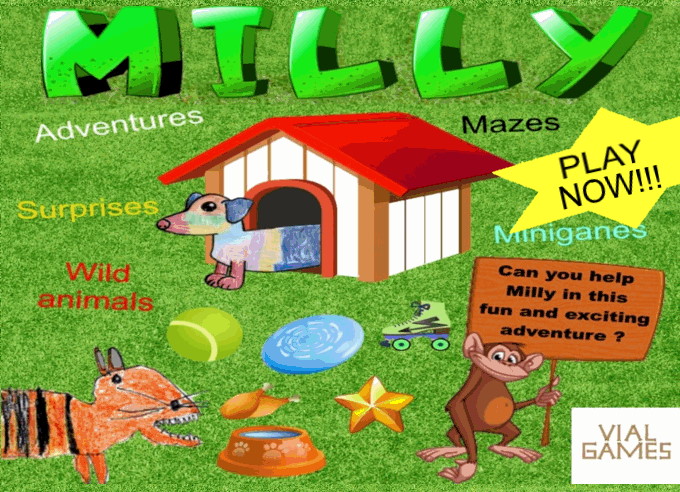Exercising your dog, ideas for a happy and healthy retriever
by Scott Gray
When you're exercising your retriever, your dog is happier, healthier, less likely to have behavioral or physical problems, and your bond with your dog will be stronger as well. All dogs need exercise to keep healthy and happy, but retrievers even more so. Retriever breeds are energetic, intelligent, and inquisitive, so they need exercise and mental stimulation even more than many other breeds do. This is why making sure to exercise your dog is important.
Exercise Ideas
Walking your dog or taking it for jogs is a good start, but you don't have to be a marathoner to properly exercise your retriever. Their name comes from what they were bred for, so utilize that instinct and teach your dog to retrieve. This is a safe and easy way for you to exercise your dog without so much exertion on your part. Try to keep the trajectory of whatever you're throwing (frisbees, tennis balls, etc.) low to avoid your dog jumping too much and hurting itself. Also, soft, forgiving objects are much better than hard ones that could damage your dog's mouth.
Hide and seek is another great game. If you have two people, one can hold the dog's collar, around the corner or inside a room, while the other hides. When everyone's set, turn the dog loose and say “seek” or another keyword. Have the person hiding call the dog once or twice until he gets the idea. This game can be played with objects as well. You can get really creative and put treats under bowls on concrete, hardwood, or tile floors and watch the dog try to turn the bowl over. Frisbees are also good for this fun.
Wrapping treats inside old gloves, rags, etc. (make sure they're clean) is another great puzzle game sure to keep your dog actively engaged for quite a while. Hiding the treat inside one of several objects on the floor is another fun “seek” game for your retriever.
There are also games and gadgets you can get to further your dog's mental agility. Paddle throwers, which allow the dog to put a toy on the paddle, step on the other end, and throw the toy into the air are popular. Skateboards (in a proper environment) are also great toys, as your dog is likely to find creative ways to shove, ride, carry, and otherwise play with one. Your dog's entertainment is limited only by your imagination—believe me, your retriever's is boundless.
When to Exercise
If you leave your dog at home all day, alone, while you're at work or otherwise engaged, making sure your retriever gets a good workout in the morning before you go can alleviate a lot of problems. Tearing up the house, bathroom accidents, and other bad behavior is almost always a direct result of too much energy and nowhere to put it.
When you do exercise your retriever, make sure to keep track of the dog's condition as the games commence. Often, retrievers will ignore their own limitations and get too rambunctious, which can lead to injury. They also rarely know when to quit and will keep fetching, running, swimming, and otherwise working themselves literally until collapse.
During the summer months, keep your dog out of the heat and try to exercise early or late in the day when it's not so hot. Likewise, make sure it's warm enough (or you're both bundled enough) before taking your dog outside for exercise in the cold winter.
Finally, make sure your dog rests and is recovered after you've exercised before doing so again. Feeding your dog right before or after exercise is also a bad idea, so keep feeding times separate from exercise times. Also be sure there is plenty of water around at all times: before, during and after exercise so your dog can keep hydrated.
Exercising An Older Dog
Retrievers usually age well and will be active for almost their entire lives. Sometimes, though, older dogs will have physical ailments that might limit what they can do. Use your imagination to alter games your dog already knows to adapt to this and offer new ones to keep the dog stimulated while still moving about and exercising.
When exercise is over, make sure that your older dog gets proper rest and is comfortable. Make sure water is available and, if needed, extras like an orthopedic dog bed, heating pads, and other items are available. Be sure the temperature is comfortable for your older dog (if it's comfy to you, it's probably good for him too) as well.
Fun Exercise Is Good Exercise
Overall, retrievers are very energetic, intelligent dogs and are easy to exercise if you use a little imagination. Plus, they're a lot of fun too!
About The Author:
Scott Gray is currently a black lab dog owner and freelance writer for RetrieverFacts.com, which has loads of information about training and raising dogs also products including retriever posters and prints and orthopedic dog beds.
Pet care information | Dogs | Cats | Birds | Fish and aquariums | Ferret | Small pet | Free classified ads | Photos | Videos | Articles
Directory | Pet books | Dog books | Cat books | Bird books | Aquarium books | Ferret books | Small pet books
© Copyright Ahappypets.com




